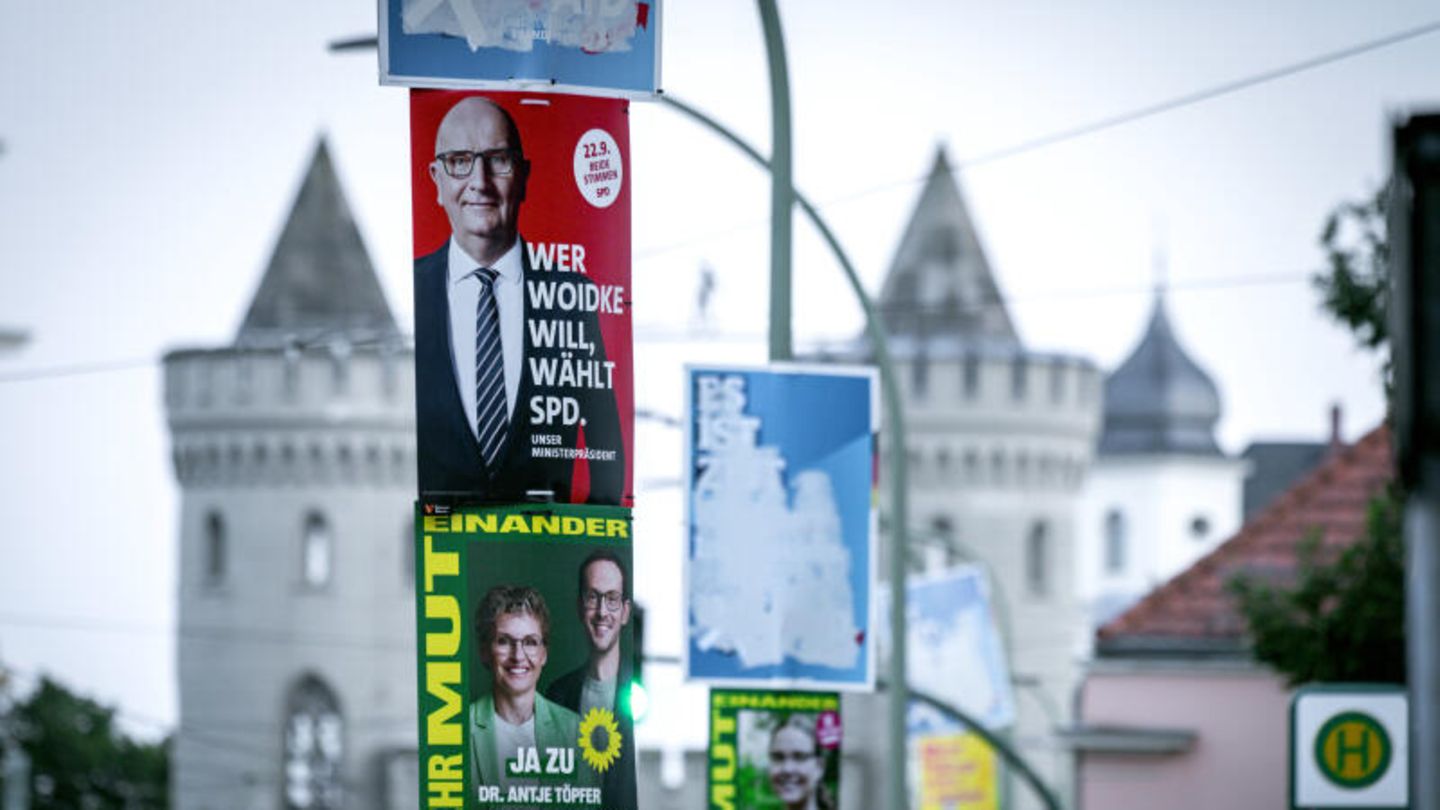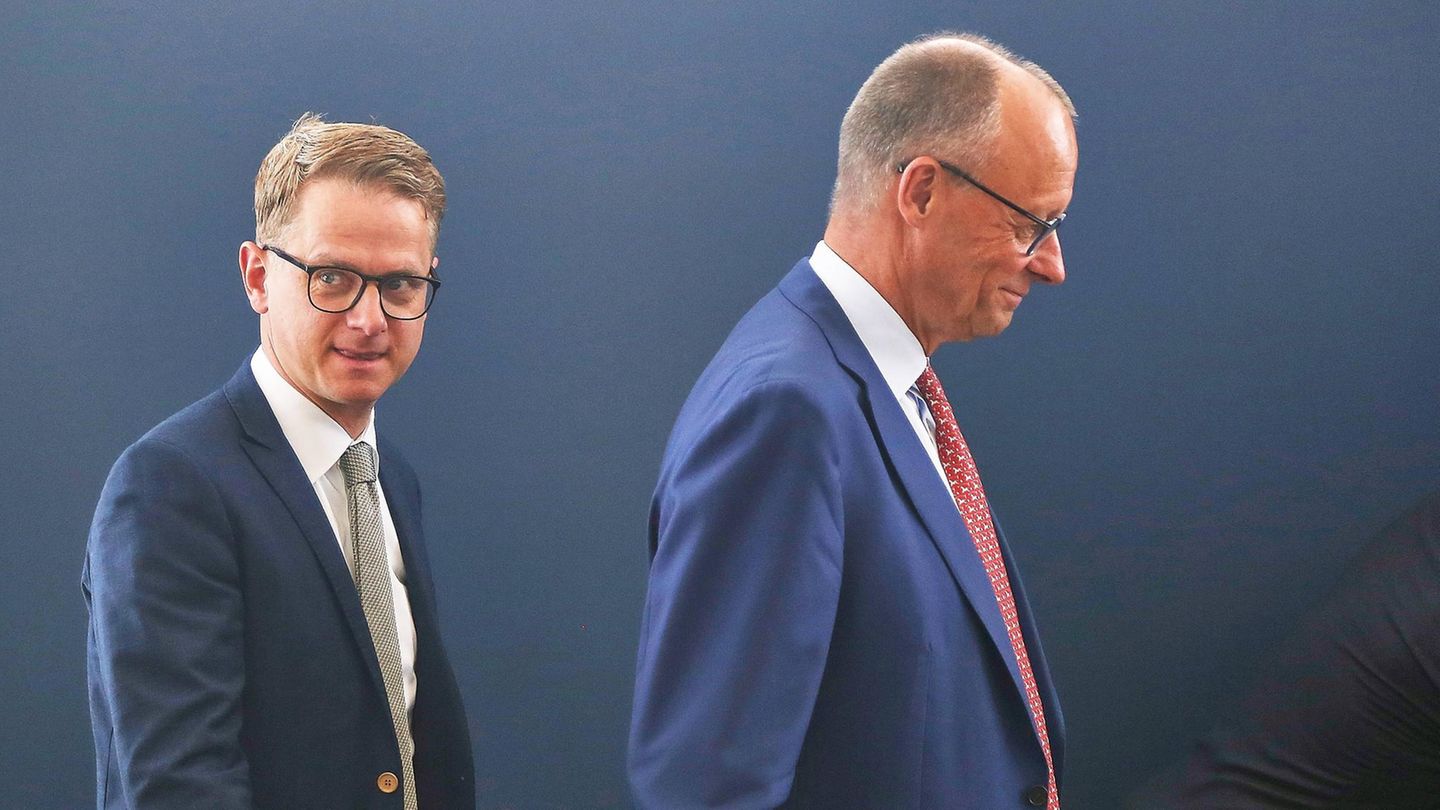Simply explained
Brandenburg is electing a new state parliament – and Germany is looking forward to it with anticipation. How long can the search for a government take there after the election, and why could it be difficult this time?
Five years ago, the SPD of Brandenburg’s Prime Minister Dietmar Woidke managed to outdo the AfD in the final stages. The SPD has always provided the Prime Minister since reunification in 1990. If the AfD were to become the strongest force now, it would be the first time in Brandenburg – and the second time in a state election after the election in Thuringia on September 1st.
Answers to the most important questions.
Who chooses what and how?
On Sunday, around 2.1 million Brandenburg residents are called to vote. Around 100,000 first-time voters are casting their votes for the first time. According to the state election commission, around 500 candidates are running. There are 348 direct candidates. Each eligible voter has two votes: the first vote is used to elect one of the 348 direct candidates in the constituency, and the second vote is used to determine the state lists – that is, twelve parties, one political association and one list association. Some parties only have direct candidates, some only have state lists.
If a party or association does not reach the five percent hurdle in the second votes, this does not automatically mean that it is not represented in the state parliament. If it has at least one direct mandate, this hurdle does not apply – the party or association then enters the state parliament – with the number of seats according to its second vote result.
When will the new state parliament in Brandenburg meet?
The newly elected state parliament meets no later than the 30th day after the election, which in the current case is no later than October 22nd. Then the old electoral period ends. In the first session, the state parliament elects a president and at least one vice president “from among its members”. This does not automatically mean that the strongest faction will appoint the president.
A vice president should belong to an opposition faction, according to the constitution since 2022. Until then, the factions had the right to propose candidates in order of their strength. The AfD provided the vice president in the current legislative period, which at times caused fierce criticism.
How much time do the parties have to form a government?
There is a deadline for forming a government. The Brandenburg constitution states: If the election of the Prime Minister does not take place within three months of the constitution of the state parliament, the state parliament is considered dissolved.
Woidke has so far governed with the CDU and the Greens. This time, forming a government could be difficult. It is unclear how strong the AfD will become, which the Federal Office for the Protection of the Constitution classifies as a suspected right-wing extremist party. No other party wants to work with it.
In addition, there is a new party, the Sahra Wagenknecht Alliance (BSW), which could play an important role in forming a government, but is so far unknown as a negotiating partner. It also depends on how many factions are represented in the state parliament.
Why could the distribution of mandates become a problem?
According to a study, the distribution of mandates could be a hurdle this time. Political researcher Robert Vehrkamp from the Bertelsmann Foundation outlines the case that the AfD could get more than a third of the seats in the state parliament with an assumed result of just over a quarter of the second votes. This could be the case if the AfD wins significantly more direct mandates than it would be entitled to based on the second vote share and the other parties do not receive enough compensatory mandates. The number of seats is capped at 110, currently there are 88 seats.
In this scenario, this would mean that without the AfD, the state constitution could no longer be changed under these circumstances. If the party had the so-called blocking minority of more than a third of the seats, it could block constitutional changes. The researcher warns that the case could lead to constitutional complaints because it would violate the equality of the election and the principles of proportional representation. However, State Parliament President Ulrike Liedtke does not believe that such a scenario will occur in the election.
Source: Stern
I have been working in the news industry for over 6 years, first as a reporter and now as an editor. I have covered politics extensively, and my work has appeared in major newspapers and online news outlets around the world. In addition to my writing, I also contribute regularly to 24 Hours World.




